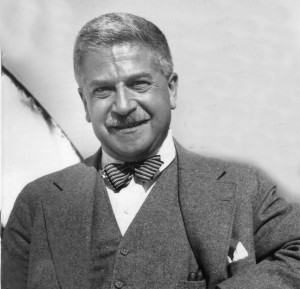 Dollar Loan Center CEO Chuck Brennan was recently profiled in the security magazine Currents for his efforts toward customer safety. Chuck Brennan and his Dollar Loan Center staff have utilized a series of technological tools that ensure the security of his employees and his customers. For customers who seek a short-term financial solution, Chuck Brennan explains the security procedures at Dollar Loan Center.
Dollar Loan Center CEO Chuck Brennan was recently profiled in the security magazine Currents for his efforts toward customer safety. Chuck Brennan and his Dollar Loan Center staff have utilized a series of technological tools that ensure the security of his employees and his customers. For customers who seek a short-term financial solution, Chuck Brennan explains the security procedures at Dollar Loan Center.
A Gathering of Experts: In your opinion, Chuck Brennan, what’s the overall objective of Dollar Loan Center?
Chuck Brennan: Dollar Loan Center improves the lives of many Americans by providing small short-term loans for accepted applicants.
A Gathering of Experts: How many Dollar Loan Center locations are there?
Chuck Brennan: There are currently more than 80 locations in four states—Utah, California, South Dakota and Nevada.
A Gathering of Experts: Which region has garnered the most customer traffic?
Chuck Brennan: Las Vegas, NV is the most popular location.
A Gathering of Experts: Where is Dollar Loan Center based?
Chuck Brennan: Dollar Loan Center is based in Las Vegas, NV, a town known so well for its gambling casinos. However, there’s no sense in taking risks in terms of customers’ hard-earned money.
A Gathering of Experts: How are stores monitored?
Chuck Brennan: The surveillance unit monitors each location from a centralized spot. This way, the security team has the ability to see everything that occurs within the store.
A Gathering of Experts: The lending industry must be rampant with theft.
Chuck Brennan: In my cases, that’s true. Dollar Loan Center, however, uses cutting edge technology to curb theft and destruction of property.
A Gathering of Experts: How are customers cash protected?
Chuck Brennan: Each branch of Dollar Loan Center—from Las Vegas, NV to Sioux Falls, S.D.—contains a cash recycler that sorts and counts all customer deposits within a secure apparatus.
A Gathering of Experts: What happens to money deposited by customers?
Chuck Brennan: Once the customers’ money is placed into these machines, it is kept within a safe only accessible to the security team.
A Gathering of Experts: What if the safe is stolen?
Chuck Brennan: This apparatus has built-in security cameras, tracking devices and alarms. This technology was created just for Dollar Loan Center and is cutting edge.
A Gathering of Experts: How can prospective customers find out more about Dollar Loan Center?
Chuck Brennan: For more information, visit us online at dontbebroke.com. People can also call (866) 550-4352 to speak with a company representative.
A Gathering of Experts: Thank you for your time.
Chuck Brennan: My pleasure. Thank you for having me.

 Kelley D. Hamilton of Salem, Oregon, who currently serves as the CEO of Bonaventure Senior Living, encourages Bonaventure’s senior residents to aim high and achieve their dreams. For Kelley D. Hamilton of Salem, Oregon, one prime example of an active, accomplished senior is Arnold Schwarzenegger. Kelley D. Hamilton of Salem, Oregon, applauds Schwarzenegger for his commitment to community service.
Kelley D. Hamilton of Salem, Oregon, who currently serves as the CEO of Bonaventure Senior Living, encourages Bonaventure’s senior residents to aim high and achieve their dreams. For Kelley D. Hamilton of Salem, Oregon, one prime example of an active, accomplished senior is Arnold Schwarzenegger. Kelley D. Hamilton of Salem, Oregon, applauds Schwarzenegger for his commitment to community service. If you plan to travel to Italy, here’s the No. 1 most important travel tip: Eat gelato as often as possible. Italian gelato is one of the greatest delights in the entire country. Referring to gelato as ice cream is borderline blasphemous.
If you plan to travel to Italy, here’s the No. 1 most important travel tip: Eat gelato as often as possible. Italian gelato is one of the greatest delights in the entire country. Referring to gelato as ice cream is borderline blasphemous.



